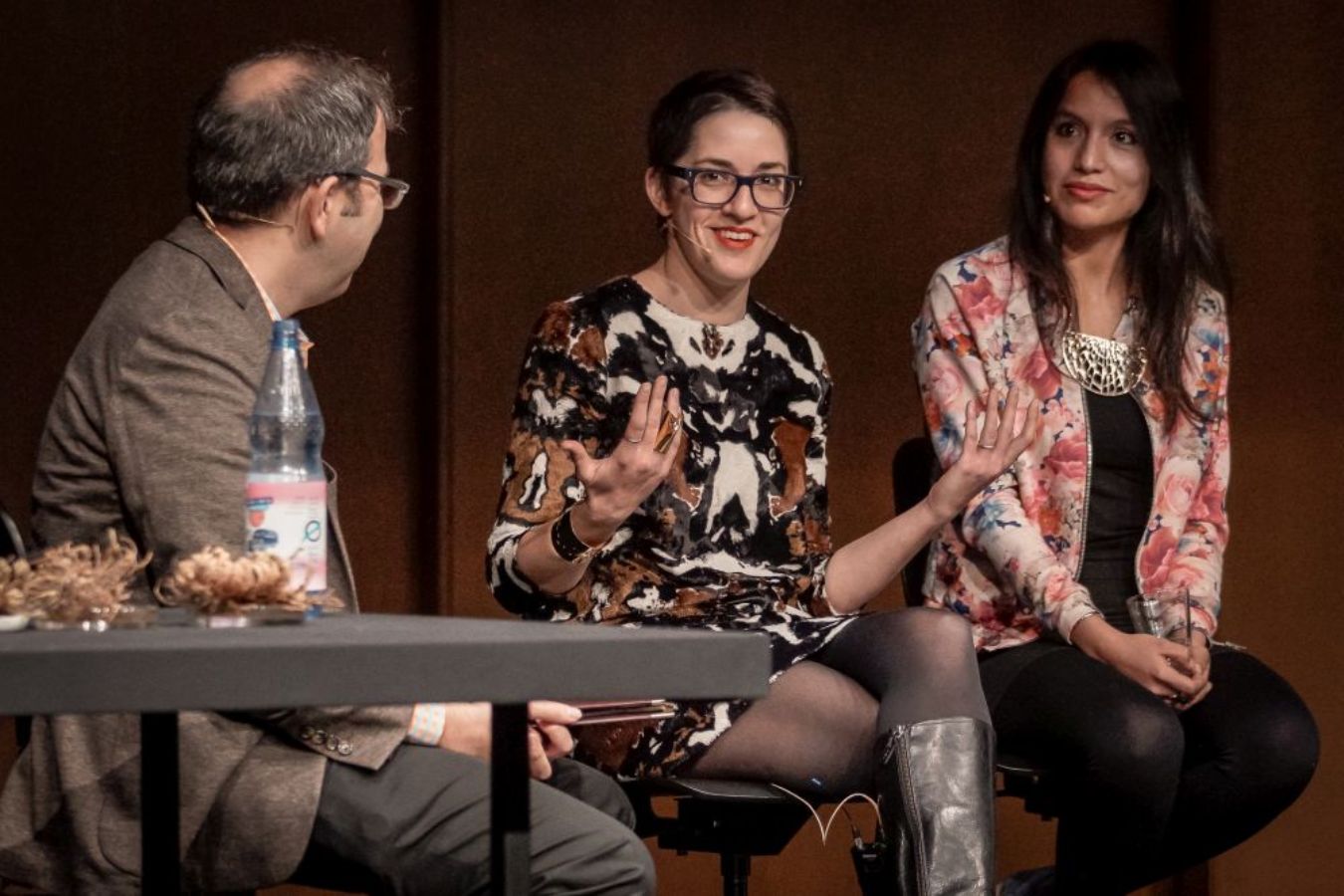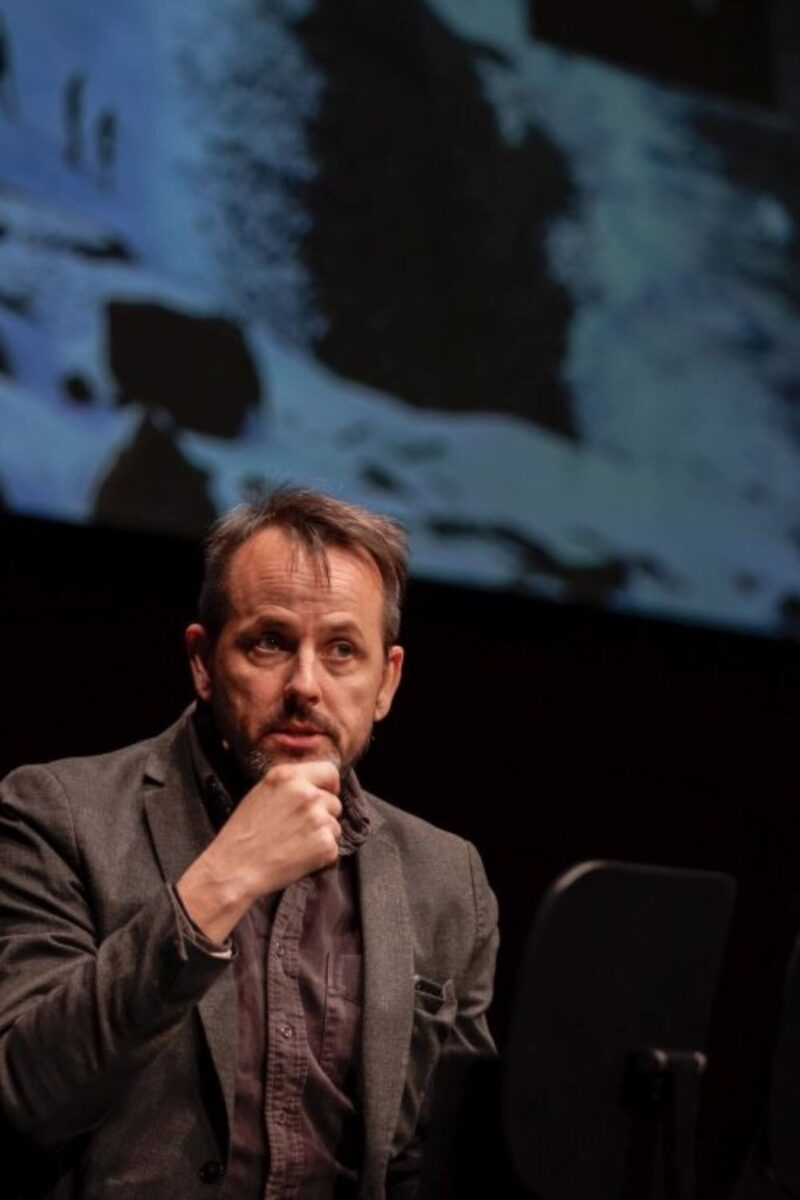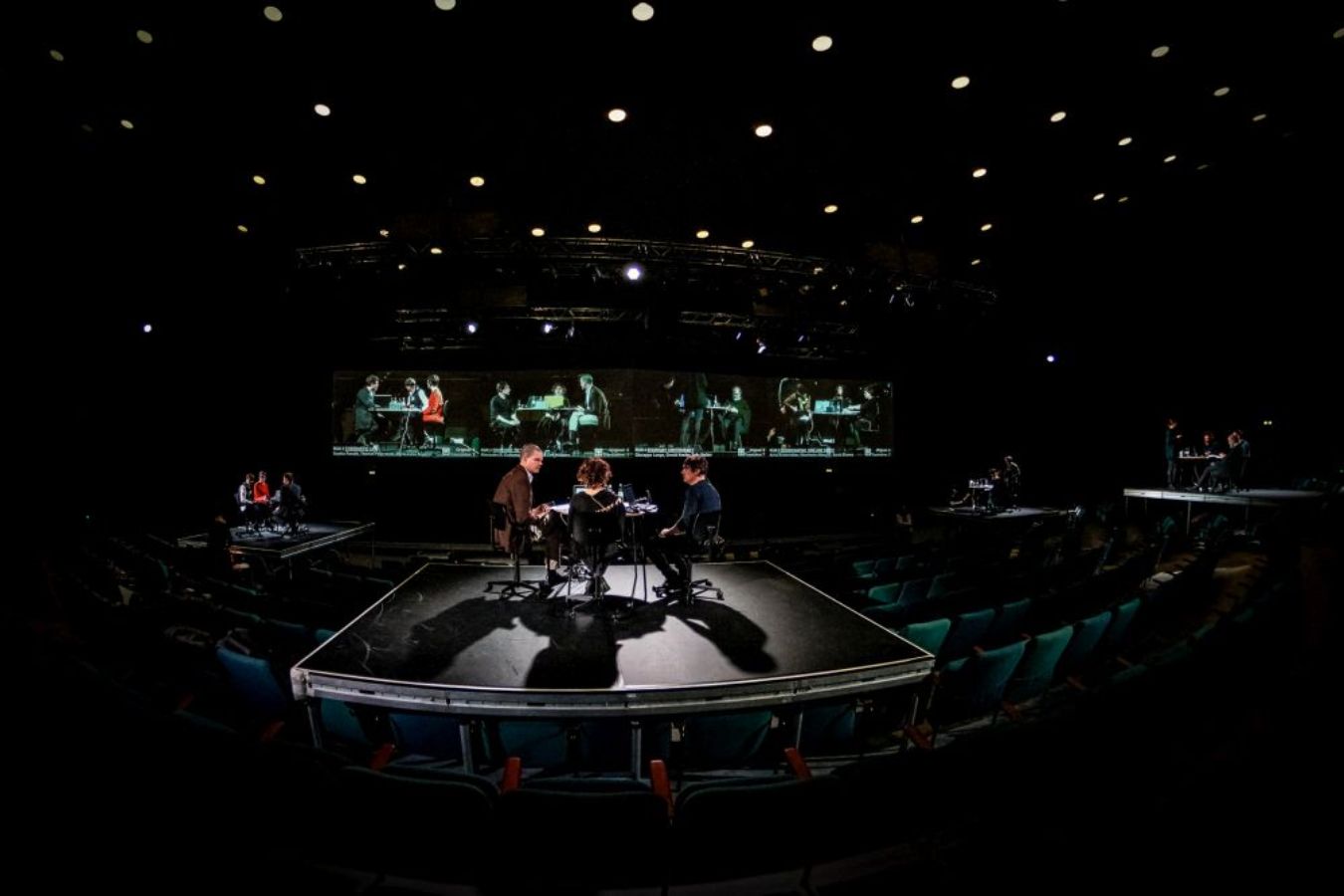1948 Unbound
Unleashing the technical present
Public event at HKW, 2017
The year 1948 serves as an aperture through which we can rethink the history of the now; the decisive moment when the heap of fragments left by the fury of two world wars began to reassemble into new forms of technological, scientific, and cultural order that inform our contemporary situation. With the atomic age, the digital age and the age of the “hydrocarbon man” taking off, 1948 represents an inflection point for many developments and path dependencies to come. In fact, 1948 is one year of re-composing not only the world – the modern project of techno-cultural and geo-political design – but the planet. The technosphere is mobilized and with it we entered the Anthropocene.
Read More
From November 30th to December 2nd, 2017, lectures, performative elements, gatherings and installations, all differing in duration, visibility, and interaction investigated historic moments and the themes that tie them together. Diverse approaches from artistic research to historical groundwork reworked current epistemological categories and our ways of looking at the various histories that have striated this planet. Switches, Seeds, Hydrocarbons, Tokens, and Chance thus serve us as exemplary historical nuclides that contour the 1948 moment of the mobilization of the technosphere. These bit registers embroil topics such as the declaration of Universal Human Rights, the invention of the bipolar transistor and the invention of “the environment” as a global condition that required maintenance and control, the heyday of the experimental Black Mountain College with the arrival of Buckminster Fuller and John Cage, and the foundation of the pioneering military-academic-industrial think tank the RAND (Research ANd Development) corporation. The topics furthermore comprised the leap of petrochemical synthetics productions that led to an explosion of fossil-fuel waste, Stalin’s “Great Plan for the Transformation of Nature,” the advent of cybernetics, the measure of digital information (the bit), the Havana Charter governing international trade and investment, apartheid, the Xerox copier, and Tupperware.
Concept: Katrin Klingan, Christoph Rosol, Nick Houde, Janek Müller with Bernard Geoghegan
- projectBenjamin Bratton, Anna Echterhölter, Oscar Guardiola-Rivera, Victoria Ivanova, Boaz Levin, Gerald Nestler, Patricia Reed, Vera Tollmann
Tokens
With the establishment of universal standards around 1948, the world is transformed into a technocratic space of transactions. Theoretical and artistic contributions contour the technical standards of an infinitely circulating present.
Conversation, Engagement, Storytelling, Intervention, Calculation, Commodities, Data, Economy, Infrastructure, Model, Network, Policy, Technosphere
- projectJosh Berson, Benjamin Bratton, Seth Bullock, Luis Campos, Elena Esposito, Alexander R. Galloway, Oscar Guardiola-Rivera, Orit Halpern, Yoneda Lemma, Giuseppe Longo, Sascha Pohflepp, Helena Shomar, Inigo Wilkins
Chance
Human culture has been a culture of chance all along. Around 1948, a new configuration of chance practices becomes operative, and high-quality (pseudo-)random numbers have become indispensable for simulating the design of nuclear weapons, calculating the future of human populations, and modeling the climate. How do we recognize the differences or similarities of these two forms of employing chance tools for making predictions?
Conversation, Engagement, Intervention, Storytelling, Teaching, Calculation, Complexity, Computation, Contingency, Disaster, Games, Knowledge transformation, Resilience, Risk, Scenario, Speculative, Technosphere
- projectknowbotiq, Pablo Alarcón, Arren Bar-Even, Nicolas Buzzi, Luis Campos, Fred Hystère, Angi Nend, Sophia Roosth, Claudia de Serpa Soares, Helena Shomar
Seeds
The technological dissolution between internal and external conditions for life is manifest in the way seeds are handled. A series of conversations explores the practices and ideologies behind the collapse of modification and mutation. A subsequent performance of micro-processions will conjure historical and current moments of the agro-industrial technosphere.
Conversation, Engagement, Intervention, Sensing, Storytelling, Teaching, Agriculture, Biosphere, Degradation, Calculation, Ecology, Environmental Justice, Extraction, Human-environment relations, Embodiment, Landscape, Life, Plantation, Water, Waste, Toxicity, Pollution
- projectDieter Hiller, Alexander Ilichevsky, Alexander Klose, Stephanie LeMenager, Jens Soentgen, Benjamin Steininger, Oxana Timofeeva
Hydrocarbons
Hydrocarbons plunges into the complexities and contradictions of the oil era and thereby into the molecular basis of the technosphere. Interweaving film scenes with a variety of visual and research materials, as well as the “sounds of oil,” the session explores the speculative cultural genre termed “petro noir,” examining the geopolitical-industrial complex that drives petrochemistry and, by consequence, mobility, consumption, waste and adventure.
Conversation, Engagement, Film, Intervention, Storytelling, Teaching, Sound, Carbon, Commodities, Critical materials, Energy, Extraction, Metabolism, Technosphere, Thermodynamics, Transportation, Waste, Scenario
- projectUbermorgen, Morehshin Allahyari, Marie-Luise Angerer, Elie Ayache, Anna Echterhölter, Thomas Feuerstein, Alexander R. Galloway, Johnny Golding, Orit Halpern, Gerald Nestler, Julian Oliver, Sophia Roosth, Sarah Sharma, Felix Stalder
Switches
The unleashing of the technosphere is, above all, the result of activating and operating numerous tiny switches. With the unfolding of information theory, cybernetics, and the microscopic power of the point-contact transistor, the year 1948 represents the material and theoretical starting point for a universal language of 0s and 1s. Contributions from theory and art oscillate between diagnostic and speculative accounts of the bit’s role in our present.
Conversation, Engagement, Intervention, Storytelling, Teaching, Agency, Big data, Computation, Governance, Infrastructure, Knowledge transformation, Model, Network, Cybernetics, Technosphere, Technoscience, System










